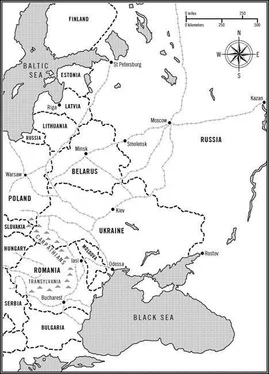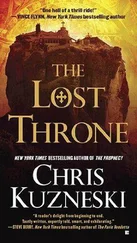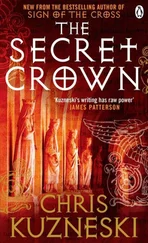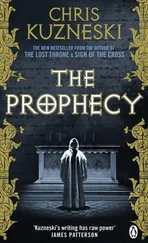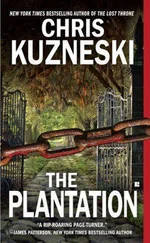Chris Kuzneski - The Hunters
Здесь есть возможность читать онлайн «Chris Kuzneski - The Hunters» весь текст электронной книги совершенно бесплатно (целиком полную версию без сокращений). В некоторых случаях можно слушать аудио, скачать через торрент в формате fb2 и присутствует краткое содержание. Жанр: Криминальный детектив, на английском языке. Описание произведения, (предисловие) а так же отзывы посетителей доступны на портале библиотеки ЛибКат.
- Название:The Hunters
- Автор:
- Жанр:
- Год:неизвестен
- ISBN:нет данных
- Рейтинг книги:5 / 5. Голосов: 1
-
Избранное:Добавить в избранное
- Отзывы:
-
Ваша оценка:
- 100
- 1
- 2
- 3
- 4
- 5
The Hunters: краткое содержание, описание и аннотация
Предлагаем к чтению аннотацию, описание, краткое содержание или предисловие (зависит от того, что написал сам автор книги «The Hunters»). Если вы не нашли необходимую информацию о книге — напишите в комментариях, мы постараемся отыскать её.
The Hunters — читать онлайн бесплатно полную книгу (весь текст) целиком
Ниже представлен текст книги, разбитый по страницам. Система сохранения места последней прочитанной страницы, позволяет с удобством читать онлайн бесплатно книгу «The Hunters», без необходимости каждый раз заново искать на чём Вы остановились. Поставьте закладку, и сможете в любой момент перейти на страницу, на которой закончили чтение.
Интервал:
Закладка:
Dvorkin knocked and pushed open the door. The room was like it had been in Alexander Palace. The walls were covered in artificial marble topped with an ornately molded entablature. Heavy, cranberry-colored curtains covered the windows. The floor was of dark gold parquet topped with a French Savonierre-style rug. Scattered around the room’s edges were various chairs, tables, bookcases, and writing desks, all in the style of eighteenth-century France.
In the middle of the room was a small table, flanked by chairs.
In one sat Grigori Yefimovich Sidorov.
The leader of the Black Robes.
42
The sight of their leader never failed to affect Dvorkin. There was a palpable thrill, knowing how clever and commanding he was, the power he wielded over the Black Robes and beyond. But that same knowledge also conjured a feeling of unease. Even today, it stopped him in his tracks.
The hawk-faced man didn’t seem to notice. He motioned for Dvorkin to sit opposite him. Dvorkin nodded gratefully, then paused in mid-step as he noticed another high-heeled boot out of the corner of his left eye. This one, however, was filled with a dainty female foot. It led to a long, shapely leg attached to the torso of another seemingly comatose young woman in white, draped across a sofa along the wall. She, like the others, seemed unconcerned or unaware of his presence.
Dvorkin looked back to his leader with a silent question. Sidorov stared back, expressionless, then looked over as if seeing the woman for the first time. He seemed to think for a moment, then rolled his eyes, stood, stepped over to the sofa, and perched beside her. He pulled a napkin off a nearby table, folded it carefully, and used it to blindfold the girl. Dvorkin was not overly surprised that she did not react.
Sidorov was about to get up, but he thought better of it. He leaned over her to open the drawer of a table, removed an iPod and headphones, inserted the earbuds deep into the woman’s ears, turned up the machine, and placed it in the crook of her corseted waist. Then he returned to his seat at the table. ‘There,’ he said. ‘Better?’
‘Yes, strannik . Thank you,’ Dvorkin said with appreciation. The term ‘ strannik ‘ meant ‘religious pilgrim’. It was a nickname their master was often called in his early years.
Sidorov waved the gratitude away as if it were a pesky fly. ‘You have served me well and our cause even better. You deserve every possible consideration.’
‘Thank you, strannik . Thank you.’
Although Dvorkin was still aware of the young woman in the room, she was only a dim presence now — especially in the shadow of an important man like Sidorov. Even when he was being complimentary, it was probably wise to pay strict attention.
‘Would you like a drink?’ Sidorov asked.
Dvorkin shook his head no.
‘Would you mind if I had one?’
‘Of course not, strannik .’ For Dvorkin, it was much more comfortable to call him ‘ strannik ‘ rather than ‘sir’, or ‘leader’, or ‘Grigori’. One was too formal, the next too venerated, and the last too familiar.
Sidorov rose from his chair and walked over to a rolling cart at the foot of the sofa where the woman lay. Dvorkin was once again hyper-aware of her shapely leg and the swath of soft naked flesh between the top of her stocking and the top of the long skirt’s slit, as his superior poured some amber liquid into a cut-glass snifter.
‘That is why I have brought you here,’ Sidorov said. His icy tone sent a disproportionately large chill through Dvorkin.
‘I don’t understand,’ he replied.
‘Even though your dedication to our cause cannot be faulted, even by your critics, some have said that your understanding of it has left something to be desired.’
‘Critics?’ Dvorkin was taken aback. ‘Who has said this, strannik ?’
Sidorov waved that away as well. ‘I am here to heal, not accuse.’ He took a sip of brandy. ‘Just tell me what you feel. Tell me what you know, so I can put your mind at rest.’
‘About what, strannik ?’
The man shrugged lightly. ‘Anything. Anything at all that pertains to us.’
Dvorkin leaned back, blinking. ‘Where to start? There is so much.’
Sidorov dismissed that statement. ‘Not really. Start here, in this very room.’ Then he looked slowly at the lounging female and smiled.
‘Ah,’ Dvorkin exclaimed. ‘Our master traveled to the Verkhoturye Monastery at the age of eighteen or so. There he learned of the Khlysty , or “Christ-believers”.’
Sidorov made a look of distaste. ‘I prefer, “They that purge”.’
‘Of course, of course. I was getting to that,’ Dvorkin hastily added. ‘The Khlysty did away with saints, and priests, and books. They — I mean we — practiced divine attainment through the repentance of sin.’
‘And to repent sin …?’
‘We have to experience it.’
‘Go on,’ Sidorov said as he took another sip of his drink.
‘The greater the sin, the greater the repentance.’
‘Yes?’
‘Our master found great power within himself with this practice. He was able to heal the sick and see the future.’
‘And?’
Dvorkin was confused. He was unsure as to what his leader wanted, so he was only able to parrot back the same question. ‘And?’
Sidorov lowered his glass and pointed it at Dvorkin. ‘There, you see? This is what I’m sure your accusers are talking about. You know the story, yes, but you do not appear to understand it. Do you bring insight to it?’
Dvorkin desperately wanted to respond in the affirmative, but Sidorov’s next words were already rolling over him.
‘The more the master sinned and repented, the greater the power he had. He healed the tsar’s son of his bleeding ailment. He brought the tsar’s lady-in-waiting back from the dead. He cried for them, he worked for them, he loved for them, and he lived for them — no matter how great the jealousy, hatred, and misunderstanding that he faced.’
‘I understand his greatness,’ Dvorkin said feebly.
But Sidorov’s words were more than an education. He used his oratory to stir himself to an emotional frenzy. This was how Sidorov had become the leader of the Black Robes, by stoking flames within himself, flames he passed on to others.
‘The priests sought to banish him,’ Sidorov preached, ‘and they were banished themselves for their sins. Their agents tried to kill him with a knife, but they were humbled by his survival. And the tsarina loved him in return, as did all the princesses. Why else was he allowed in their bed-chambers? The ladies of court loved him, and that was truly why he was most hated by men of power. They all wished they were loved as greatly. Yes?’
‘Yes,’ Dvorkin replied.
‘Yes?’
‘Yes!’ Dvorkin exclaimed, catching fire. ‘That’s why Prince Yusupov, the Grand Duke Pavlovich, and Duma representative Purishkevich plotted to kill him.’
Sidorov put the snifter down so hard Dvorkin thought it might break. His leader’s smile was wide but his eyes were cold. ‘Yet they could not kill him, could they?’
‘No, strannik .’
‘What else did they call him?’
‘I–I must think-’
‘What else did they call our master besides strannik ?’
Dvorkin’s mind raced. They had called him the mad monk, but he dared not say that.
‘Later in life, Pavel! What did they call him?’
‘ Starets! ‘ he suddenly remembered. ‘Venerated teacher. Elder monk confessor.’
Sidorov calmed. ‘Yes,’ he breathed. ‘ Starets .’ He looked at the ceiling as if searching for a sign or message, then looked upon his associate with pitying intensity. ‘And our master starets sinned so much, and repented so much, that he could heal the sick and see the future, yes?’
Читать дальшеИнтервал:
Закладка:
Похожие книги на «The Hunters»
Представляем Вашему вниманию похожие книги на «The Hunters» списком для выбора. Мы отобрали схожую по названию и смыслу литературу в надежде предоставить читателям больше вариантов отыскать новые, интересные, ещё непрочитанные произведения.
Обсуждение, отзывы о книге «The Hunters» и просто собственные мнения читателей. Оставьте ваши комментарии, напишите, что Вы думаете о произведении, его смысле или главных героях. Укажите что конкретно понравилось, а что нет, и почему Вы так считаете.
